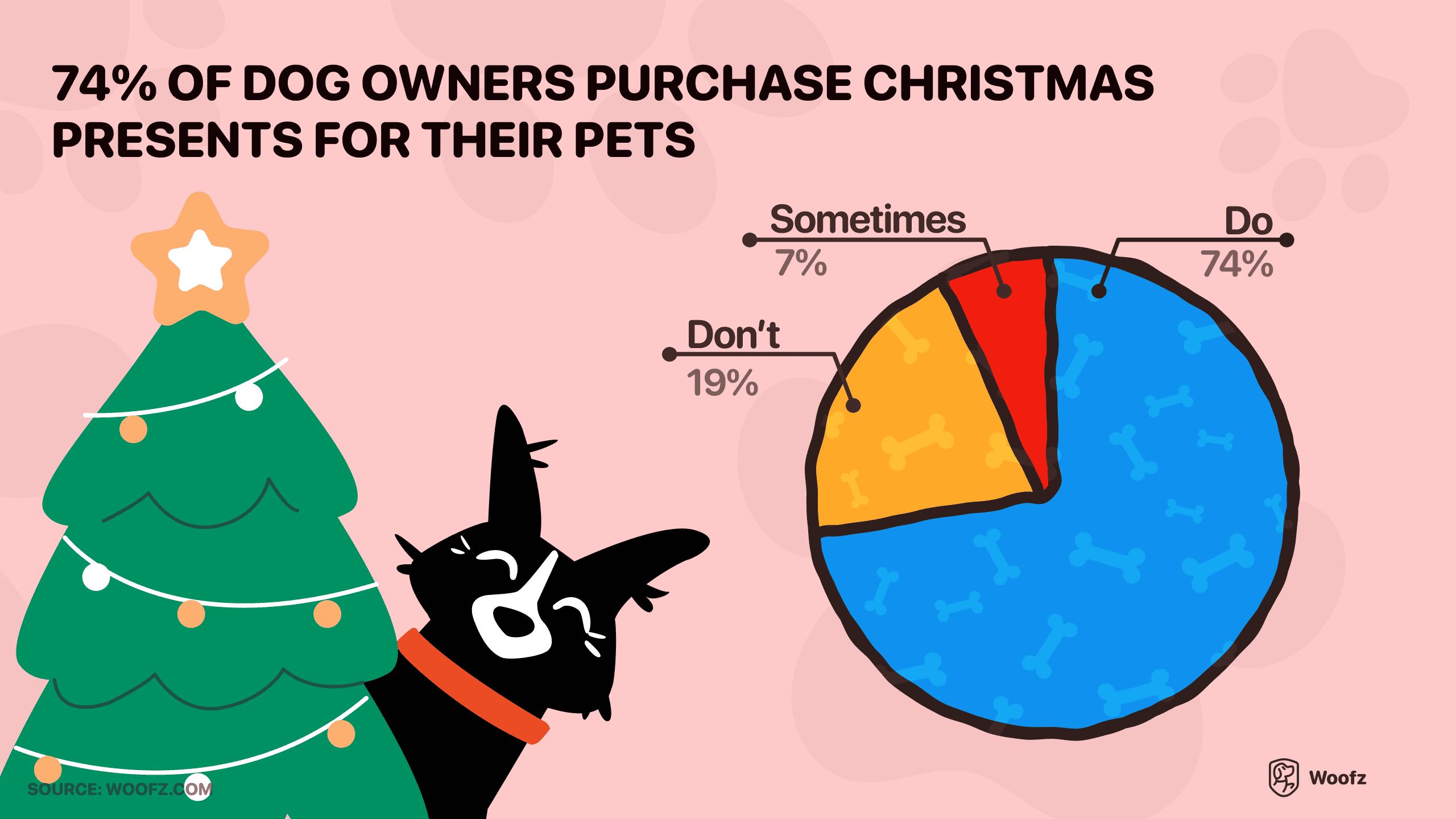What do Pet Owners Spend the Most Money On?

By
Woofz Team Updated on |Reviewed by
Ekaterina EmelyanovaCaring for a pet is a lot of things: rewarding, heart-warming, enriching, and, of course, a heck of a lot of fun too. But there’s one thing that it isn’t – and that’s cheap.
Of course, most of the time, no pet lover is going to begrudge a bit of extra spending to ensure their furry friend can have what they need. But when money is short, the situation is trickier.
What happens when an unexpected vet bill arrives at a time when your personal finances are already stretched to breaking point? Letting down your pet may well be out of the question, but it still means tough choices elsewhere.
Given today’s global economy, such questions aren’t just hypotheticals for millions of Americans. That’s why we surveyed 2,000 pet owners of different ages and genders to see how they were coping with the potential financial stresses of pet ownership.
Here’s what they told us:
-
1 in 5 pet owners say the economic downturn has made it more difficult to care for their pet.
-
Half of pet owners have had to spend less money on their pet, cutting back on things like toys and grooming.
-
More seriously, 19% of pet owners say they are spending less on insurance, while 12% are trying to avoid vet bills.
-
1 in 7 dog owners worry they might have to give up their pet if the economy doesn’t get better.
Pet Owners Are Feeling the Strain
According to the Pew Research Center, 62% of American households own at least one pet. Adjust that for the current population of the United States and you have 100 million cats and dogs across the country.
Given the ongoing economic uncertainty, it’s perhaps no surprise that a sizable share of those pet-owning households say that they are feeling more financial strain when it comes to animal care. In total, 19% of our survey respondents said that the downturn had made it more difficult to look after their pets.
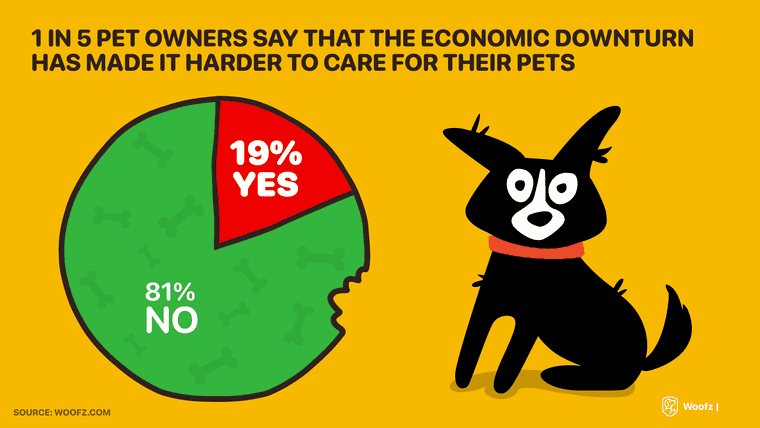
Such a difficult situation will inevitably take its toll on the wellbeing of pet owners. Indeed, 17% of our respondents said that worrying about being able to afford their pet was negatively impacting their mental health.
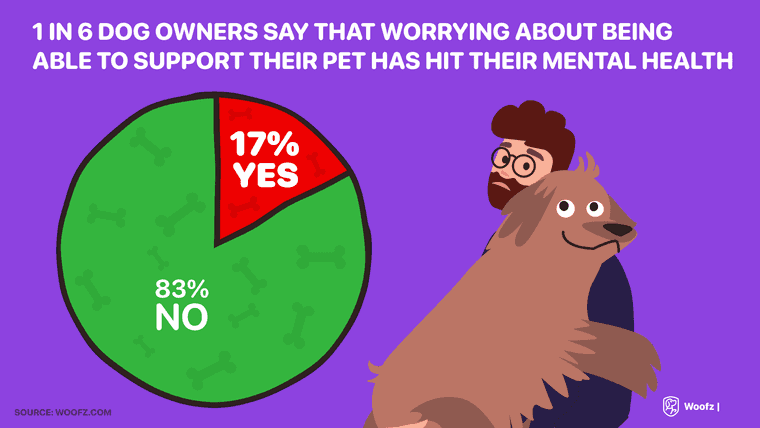
Just how difficult is their situation? For a small number of pet owners, the outlook is as difficult as it gets: with 14% of dog owners saying that they might have to give up their canine if their financial situation doesn’t improve.
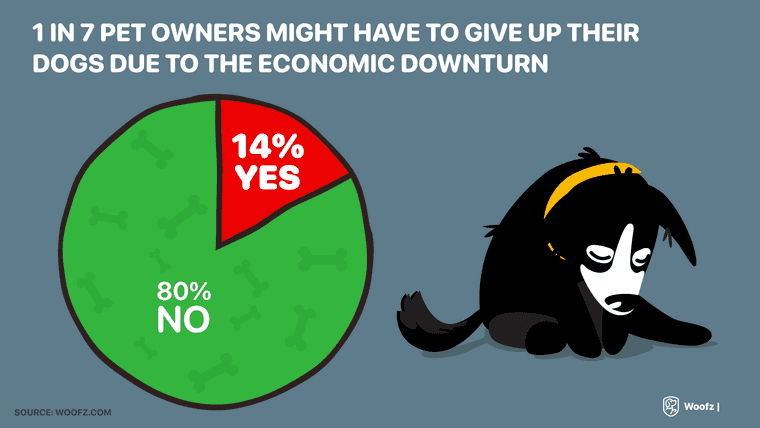
Thankfully, of course, there are other options. And it turns out that the vast majority of America’s pet owners are well aware of the different levers at hand. Indeed, half of all respondents said they were taking at least one measure to make pet ownership more affordable.
Pet Owners Are Prioritizing Their Spending Carefully
When asked what kind of things they were doing to save money, the most common answer among our 2,000 respondents was going without pet toys – with 26% saying they were buying fewer novelties and playthings than before the downturn.
Just behind that was training classes, with 25% of respondents saying they were spending less on professional expertise to keep their pet in check. Similarly, 17% were foregoing accessories – and missing out on all those cute pet selfies and poses.
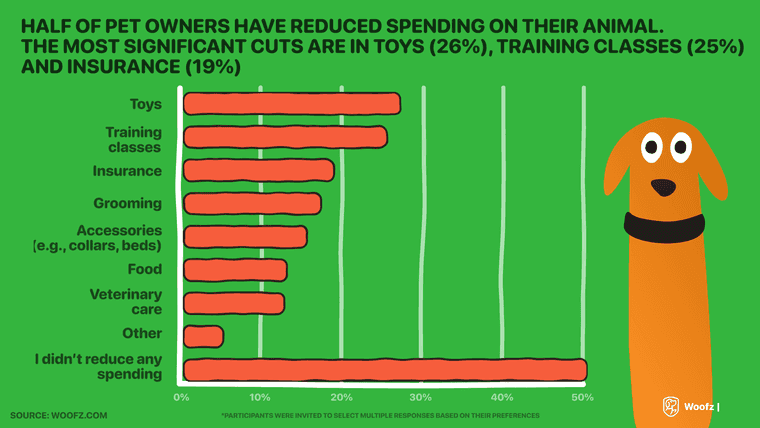
Then there were the less frivolous things, with 18% of respondents saying they would be visiting the groomer less often (or at least opting for cheaper treatments).
At the most serious end of the spectrum, 19% said they were spending less on insurance, 12% were looking to reduce their vet bills, and 12% were buying less pet food.
On vet bills, 1 in 6 dog owners said they had skipped or postponed visits to the vet altogether due to financial problems.
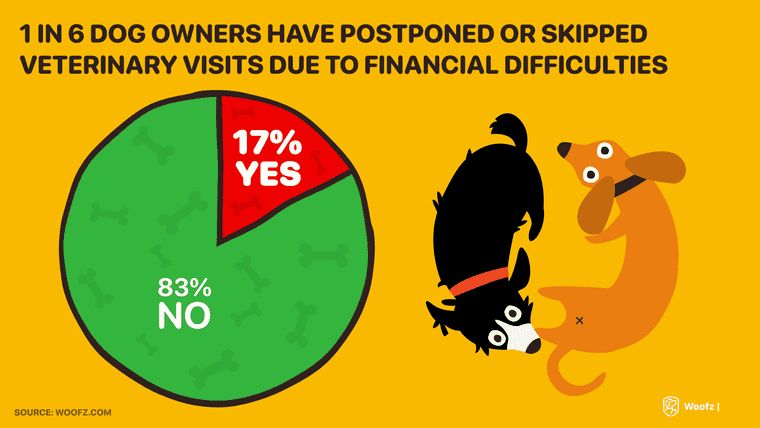
But saving money doesn’t have to mean going without. We also learned that pet owners are increasingly trying to do more things themselves to avoid spending money that they don’t have to.
The most common example of DIY pet care was home grooming, with 43% saying they had switched to bathing and trimming their pets’ fur in their own home to save money.
Other options included preparing your own pet food (12%) and creating your own homemade toys (11%) for the little ones to get stuck into.
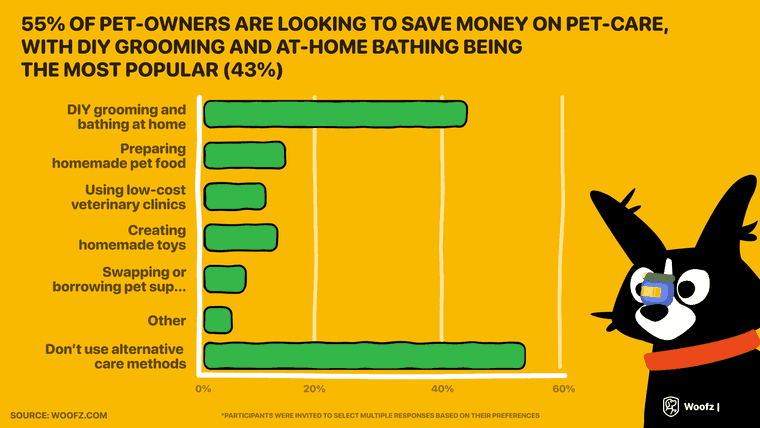
Some Pet Owners Are Spending Less On Themselves
While many pet parents want to make financial savings, some prefer to make cutbacks in their own lives rather than spending less on their companion.
Overall, 37% said they were spending less on themselves, with common areas for cutting back including leisure expenses (14%), shopping (13%), and vacations (10%). Meanwhile, 6% were taking on a side hustle to help pay for their pet.
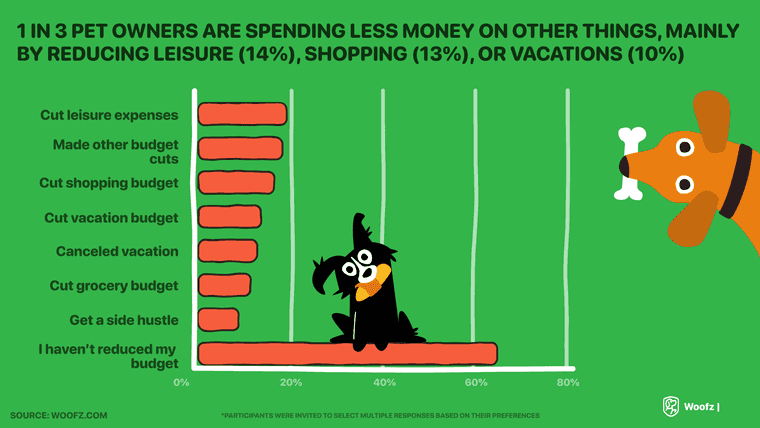
Elsewhere, 1 in 6 respondents said they had taken on debt to pay for their pet care. Unsurprisingly, the most common cause was those pesky vet bills, with 11% saying they had borrowed money to pay for medical care.
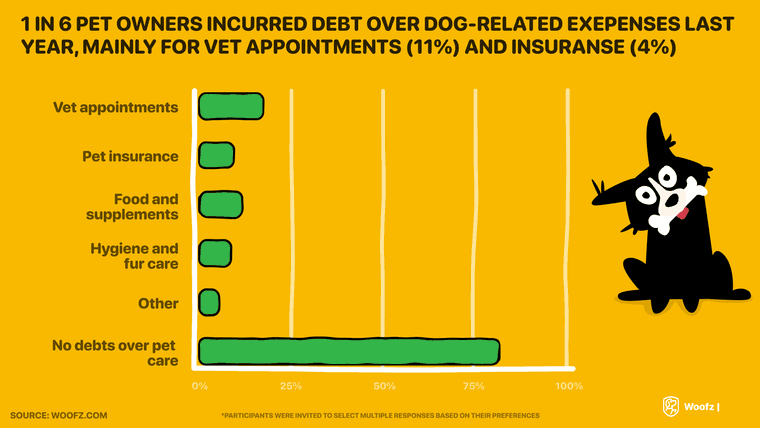
There’s no doubt, then, that America remains a nation of animal lovers, with pet lovers committed to their companions. But it’s clear, too, that keeping your furry friend has become trickier than it used to be – resulting in difficult choices for some owners.
Methodology: To create this study, researchers from Woofz surveyed 2,000 dog owners of all genders aged over 18 years old. The study includes participants from all geographies.
